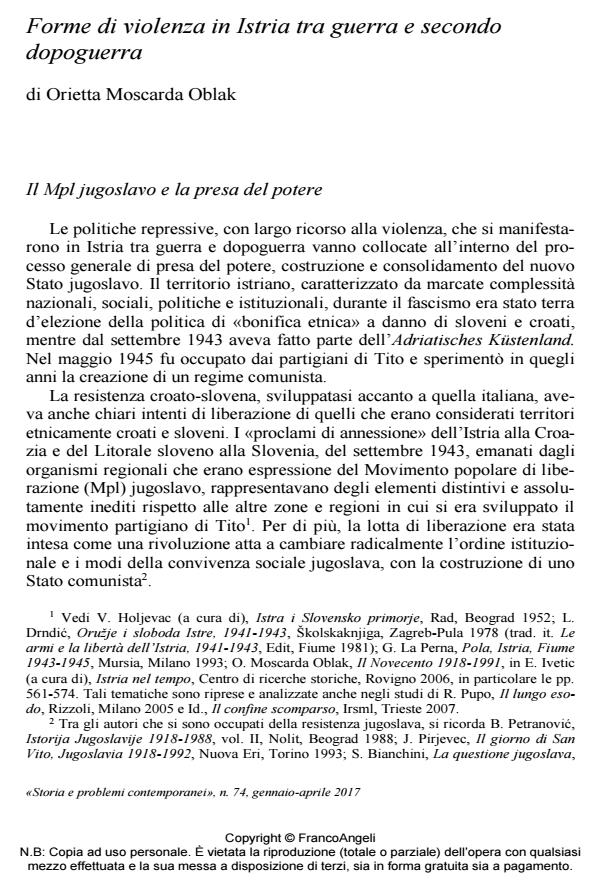Forme di violenza in Istria tra guerra e secondo dopoguerra
Titolo Rivista STORIA E PROBLEMI CONTEMPORANEI
Autori/Curatori Orietta Moscarda Oblak
Anno di pubblicazione 2017 Fascicolo 2017/74
Lingua Italiano Numero pagine 16 P. 59-74 Dimensione file 214 KB
DOI 10.3280/SPC2017-074004
Il DOI è il codice a barre della proprietà intellettuale: per saperne di più
clicca qui
Qui sotto puoi vedere in anteprima la prima pagina di questo articolo.
Se questo articolo ti interessa, lo puoi acquistare (e scaricare in formato pdf) seguendo le facili indicazioni per acquistare il download credit. Acquista Download Credits per scaricare questo Articolo in formato PDF

FrancoAngeli è membro della Publishers International Linking Association, Inc (PILA), associazione indipendente e non profit per facilitare (attraverso i servizi tecnologici implementati da CrossRef.org) l’accesso degli studiosi ai contenuti digitali nelle pubblicazioni professionali e scientifiche.
The authoress develops the theme of violence developed in Istria between the World War II and the post-war years in the process of taking of power and the construction of the new Yugoslav state from a revolutionary Communist-led movement. The violence and repression exercised by the Yugoslav Security Agency (the Ozna-The Department of National Security), proved crucial in the seizure of power and in the showdown against the occupiers (Germans, Italians), but also of all the potential or alleged traitors and of class enemies. A policy of persecution initiated against the clergy of Italian nationality, since they were regarded as opponents to the communist regime’s policies and supporters of maintaining the Italian sovereignty.
Orietta Moscarda Oblak, Forme di violenza in Istria tra guerra e secondo dopoguerra in "STORIA E PROBLEMI CONTEMPORANEI" 74/2017, pp 59-74, DOI: 10.3280/SPC2017-074004